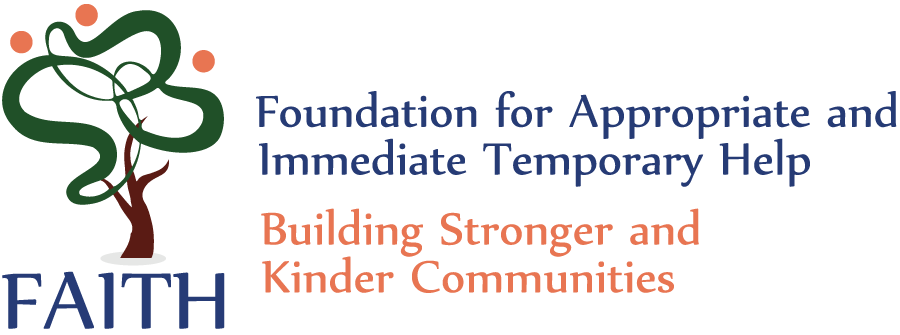Emergencies happen, and it’s critical to have a plan in mind for how you’ll obtain aid when they occur.
This article will show you how to seek assistance in an emergency. It’s critical to have a strategy in place for how you’ll obtain aid in the event of an emergency. Emergencies may range from inconvenient to fatal.
However, people may take some simple preparations ahead of time to lessen the impact on themselves and their families. By expediting recovery after unavoidable catastrophes, family and community preparatory planning can improve social resilience and reduce the disastrous consequences.
The four types of crises are diagnostic, natural disasters, personal security, and stolen property. Once you’ve decided the type of emergency, you may begin taking steps to acquire assistance.
Dialing 911 is the initial step in dealing with a medical emergency. The 911 operator will guide you through the procedure if you’re unclear what to do or need assistance.
Crises may happen to anybody, at any time. While you hope they never occur, having a plan in place in the event that they do is critical. Part of this is determining who to notify and what to do in the case of any emergency.
Unless you’re on travel or out on a stroll, it’s vital to have a plan in mind for when circumstances go haywire.
The easiest approach to receive aid in a crisis is to phone the emergency hotline. Try to contact somebody who can assist you. You also can request guidance from your local regional hospital or nearest police.
Family Emergency Planning
A family emergency plan is a document that helps a family prepare for, and respond to, an emergency or disaster. Emergencies can include anything from a house fire to a natural disaster. Creating a family emergency plan will help you and your loved ones stay safe in the event of an emergency.
A family emergency plan is a sequence of instructions that spells how members of the family will communicate and reconnect in the event of a tragedy or emergency.
From a home fire to a natural calamity, emergencies may happen at any time. A serious emergency plan should be in place so everyone understands what to do in the event of an emergency.
Among the most popular assets any home may have to shield oneself in the event of an emergency, along with a list of contacts. When thinking about what to do in an emergency, think about any members of the household who have special needs, specific measures for children, and what you’ll do with your companion animals.
As part of your preparations, gain access to any important financial and personal records and keep them safe. Think about taking all necessary precautions to fortify your house. Everyone in the household must know what to do, how to get there, and what to carry in the event of a tragedy.
We cannot anticipate what emergencies are all over in today’s ever-changing environment, so the idea is to be equipped for the unexpected. Human existence can only survive three days without eating, therefore having a backup supply is critical for survival.
-
Hazards
Discuss with your municipal authorities about the kind of hazards that are common in your area, as well as contingency preparations like bunkers and evacuation plans. Evaluate your environment and how these threats could affect your family. Thinking about the potential is part of being ready. Despite the fact that information and preparedness are both free, our own fears may prevent us from assessing risks and their effects.
Determine if you live solely or with a family, if you have children or adults who involve special help due to insurance or physical disabilities, and whether you live in a high-rise, a basement flat, or a house.
-
Emergency Contact Information
Since mobile phone information databases are more accessible, we no longer memorize contact details. If your phone loses power, you’ll need that knowledge to call relatives and friends from a different phone. Make a list of all the contacts from your phone that you’ll need in an urgent situation.
-
Meeting Reunification
Find a suitable setting that is far enough away from your home to be seen in case of a fire. Unlike of the park nearby, choose a nice particular place, such as a park bench, canopy, or other stable fixture.
Educate young children to watch for a parent or another responsible adult to come.
Regardless of the age and aptitude of the children, you may want to set up a gathering site at this end of the road as a way of keeping children from walking along the street during the excitement of a house catastrophic event with swiftly approaching state and federal government regulators.
Emergency preparedness should be taken seriously, and an emergency survival kit is crucial for ensuring that you are not just ready to flee the scene if tragedy hits, but that you have all of your critical goods packed and ready to respond to any crisis.
Any preparation effort should include a well-thought-out departure strategy, providing you some control in an unforeseen scenario and enabling you to best secure your family’s safety.
-
Family Communication Plan
When accidents or emergencies strike, our first instinct is to contact family and friends to make sure they are safe. A residential strategic plan that contains relevant contact details for household members, as well as out-of-state contacts should be included in a family emergency response plan.
Make a list of contacts, phone numbers, email addresses, and other information that your family will need to stay in touch. Schools, healthcare facilities, municipal telecommunications companies, babysitters/caregivers, and family members and friends may all be able to supply additional data that may be included in your family’s planning process.
Local first responders will be overwhelmed in a large-scale incident. Individuals, families, and communities might be on their own for hours, days, weeks, or even months until aid can organize and arrive. Every person and family who prepares for catastrophes lessens the strain on rescuers and boosts community resilience.
You are accountable for your own and your family’s health and well-being. Prepare for the potential interruptions to your family’s lives those catastrophes may bring. You will all be “ready” to tackle any disaster if everyone in your family knows what to do and how to do it.
Everyone in the family or home should be included in the emergency preparation process. When calamity hits, your family may not be together, so create emergency arrangements ahead of time. What method will you use to communicate with one another? How are you going to get back together? What will you do in a variety of scenarios and disasters?
Determine everybody is knowledgeable of the various types of disasters that might occur, and also what you will do in each instance. Guarantee that everyone else in your family or household is informed of the plan.
Family Evacuation Plan
Political standpoints abound on the path to appropriate preparedness. The most important thing to remember is that you are planning for an emergency, thus your food storage strategy should be based on variety and simplicity of preparation.
However, before you invest in survival food and equipment, you must first create a family emergency plan. This strategy will assist you in deciding whether to use a shelter-in-place option or evacuate with your grab-and-go emergency supplies in the event of an emergency scenario (weather or natural catastrophe).
It is vital to ensure that all relevant households are equipped and alert in the event of a crisis or emergency. Because you might not be together when these events occur, create plans to guarantee that you can communicate and find each other though.
People are frequently forced to flee their homes, communities, cities, and even states as a result of disasters. Because you may not have much time to brake when a crisis occurs, having a plan in place to have your relatives out of harm’s way swiftly and effectively is critical.
The incident could occur without provocation and at any moment. It also has the authority to physically remove you from your area or isolate you from your house. What would you rather do if you can’t get access to liquids, gas, power, or a mobile?
After a tragedy, local officials and aid workers will be on the scene, but they will not be able to reach everyone straight soon. During a disaster, you and the rest of your family might be separated. It will be easier to find each other if you have a strategy.
Families can and do cope with disasters by planning ahead of time and cooperating as a team. It is both your greatest protection and your obligation to know what to do.
Learn where you may find a public refuge in your area. Make “in-case-of-evacuation” plans to stay with a friend or family who lives outside of town, or in a hotel, motel, or campsite that you are comfortable with and that is accessible by an evacuation route you expect to travel.
If particular highways are blocked or closed, have different escape routes planned. During an evacuation, remember to heed the instructions of local authority. They’ll guide you in the direction of the safest way; certain routes may be closed or dangerous.
In most public shelters and other venues where food is served, pets (excluding service animals) are not allowed. Make a plan for where you’d take your dogs if you had to go to a public shelter where they weren’t allowed.
Several localities are building animal shelters that are analogous to human shelters in the event of an emergency. Ask your local crisis management framework to find available essential animal rescues in your region if you have nowhere to go and therefore need to surrender your pets to a community refuge.
What you do is determined on the scope of the issue, its proximity, complexity, and what government entities would like you to achieve. Transactional sheltering and evacuation plans are essential, and both should be planned and practiced in advance.
The Foundation For Appropriate And Temporary Help ( FAITH) Social Services, a grassroots organization committed to providing economic and moral empowerment for the community, is there to help. With its noble mission to give humanitarian aid to impoverished families and individuals living in the Northern Virginia area, the organization upholds its mission to help those in need to achieve self-reliance and independence, and eventually restore their human dignity.
“In the true spirit of Zakat, we uphold our values wherein giving is more than just material, and that these also involve supporting the spirit and the mind.”
“Our primary mandate is to preserve and restore the human dignity of each individual in the community, “ says FAITH management.







